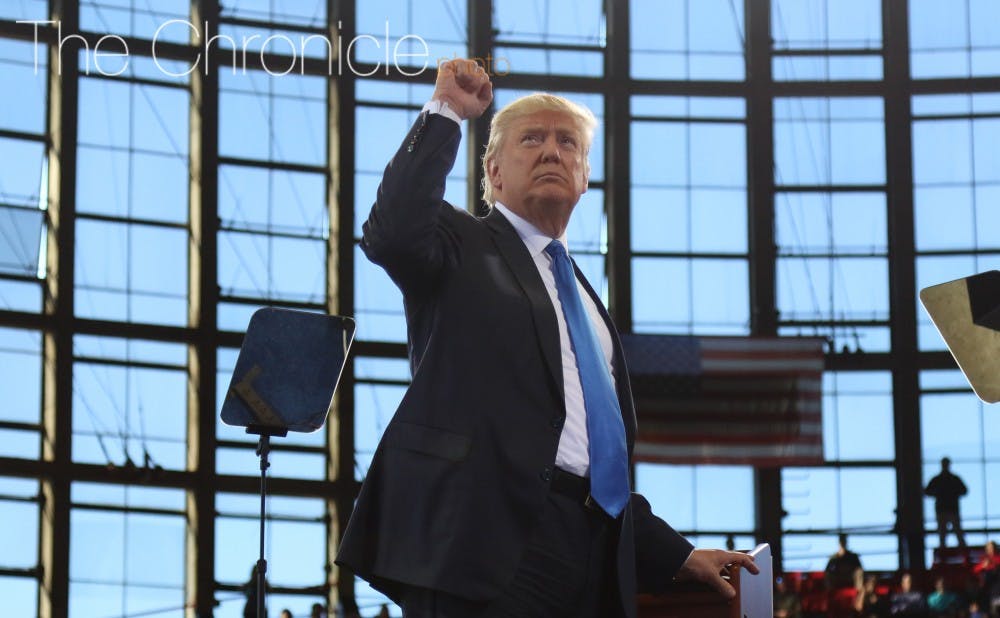President-elect Donald Trump is at odds with several intelligence agencies regarding the role of Russian interference in the 2016 election.
A report released last week by the Central Intelligence Agency accuses Russian President Vladimir Putin of ordering an influence and information campaign designed to boost Trump's candidacy. Although Trump acknowledged that Russia and China are trying to penetrate American cyber infrastructure, he insisted after a classified briefing that hacking had "absolutely no effect on the outcome of the election."
“We also assess Putin and the Russian Government aspired to help President-elect Trump’s election chances when possible by discrediting [Democratic nominee Hillary Clinton] and publicly contrasting her unfavorably to him," the report said.
But the document is also short on specifics about exactly what evidence the agencies used to reach this conclusion, noting that the "full supporting information" is only present in the classified report in order to protect sources.
Reactions to the affair have been divided. Citing the lack of concrete evidence, Republican House Speaker Paul Ryan said the report should not be used to cast doubt on Trump's victory. Republican Senators John McCain and Lindsey Graham have urged Trump to take a stronger position on Putin, to which Trump has said only "fools" would oppose better ties with Russia.
Senior Adam Lemon noted it is predictable from a political standpoint that Trump will not openly agree that the election was rigged against his opponent.
"They would deny that to the grave, so I don’t think that’s surprising," noted Lemon, former chair of Duke College Republicans.
But he said nonetheless that Trump's statement is concerning.
“The troubling part has to do with the fact that he doesn't necessarily comprehend the role that intelligence agencies play, and that they are not supposed to be political whatsoever,” Lemon said. “He seems to think of them as almost obstacles.”
Ellen Mickiewicz, James R. Shepley emeritus professor of public policy, echoed the sentiment. She said Trump's statements were not based on "deep knowledge" or "experience."
“It’s dangerous, or let’s say dysfunctional, for a presidential administration not to take into account all the possibilities and their consequences with as full knowledge as possible and then making decisions,” she said.
Trump did receive a classified briefing on the issue last Friday, but in general, he has insisted he does not need to have a intelligence briefing every single day.
At the same time, it would be a mistake to assume that Russia's influence significantly altered the election results given the current evidence, Mickiewicz said. Junior Amy Wang, vice president of Duke Democrats, noted that agencies have only pointed to an information campaign, not the altering of ballots.
“Did it play a statistically significant role in moving the election one way or the other?” Mickiewicz said. “No. There’s no evidence to suggest that.”
The affair has also created a rift between outgoing President Barack Obama and the incoming Trump administration.
Obama announced sanctions on Russia’s two leading intelligence services at the end of December, also expelling 35 Russian diplomats. In a tweet the same day, Trump praised Putin as “very smart” for not immediately enforcing retaliatory sanctions.
“Does it undermine President Obama? It certainly does," Mickiewicz said. "We’re only supposed to have only one president but President-elect Trump has been acting like president ever since he won the election.”
Given the sharp divide between the stances of incoming and outgoing presidents, Lemon said the future of Russian relations is uncertain.
“It could very well be that Trump and Putin have a good working relationship,” he said. "That’s just not been the cycle of U.S.-Russia relationships since the end of the Cold War. It’s been one of high hopes and constant disillusionment.”
Mickiewicz also noted that lawmakers have been reminded of the importance of cybersecurity after the report but that she is concerned partisan politics will outweigh efforts to address the problem.
Get The Chronicle straight to your inbox
Sign up for our weekly newsletter. Cancel at any time.
“It’s not just elections, it’s that almost every major element of how a country runs is controlled by mechanisms that pass through cyberspace,” she said. “So every country has to harden those defenses. You can’t leave loopholes.”

